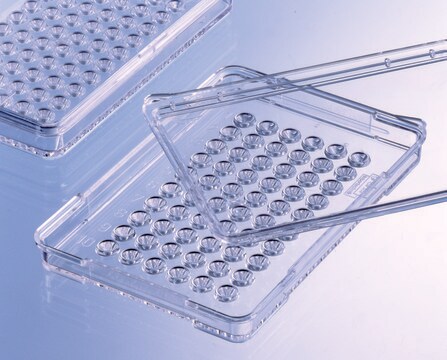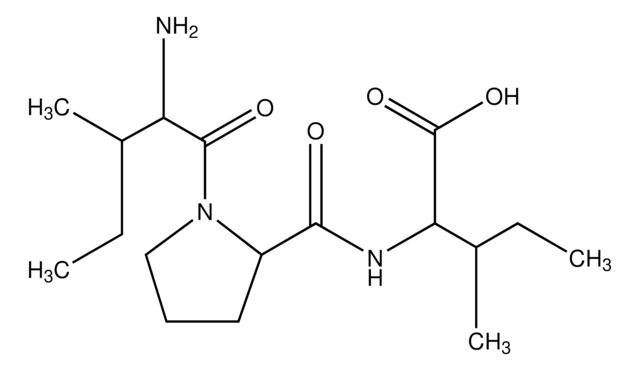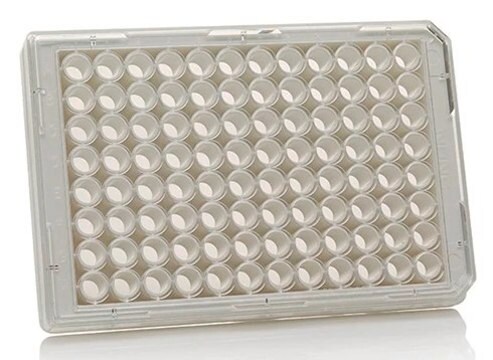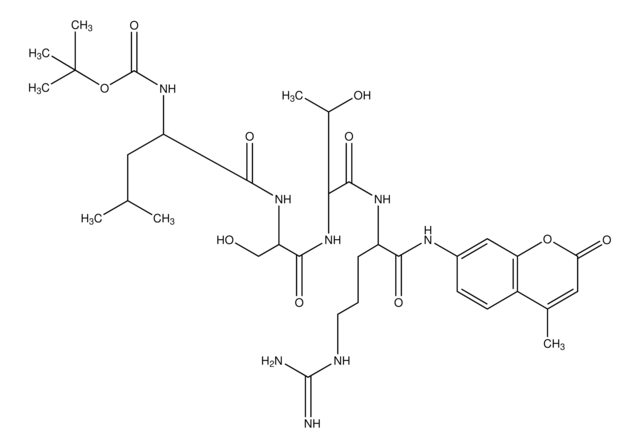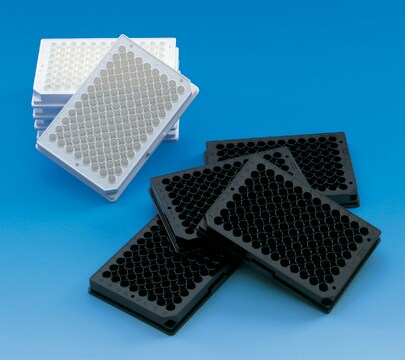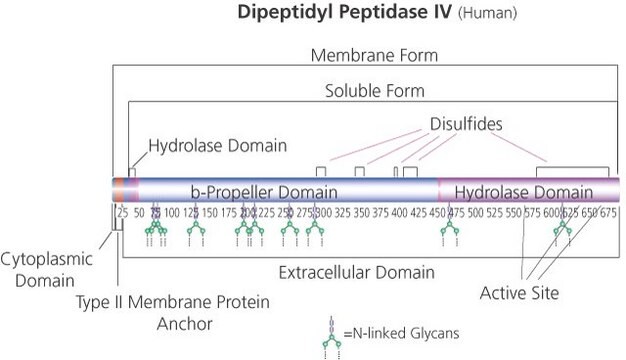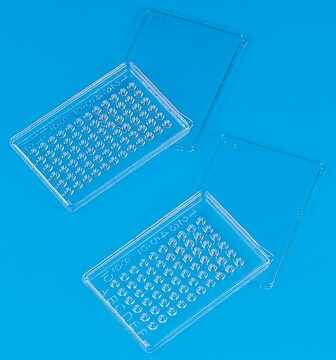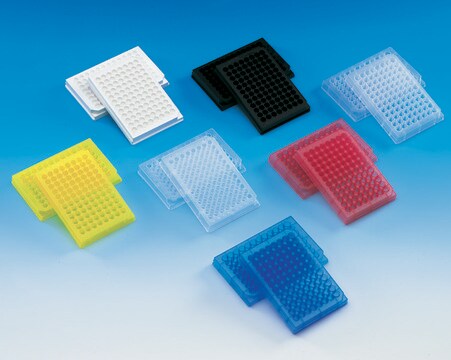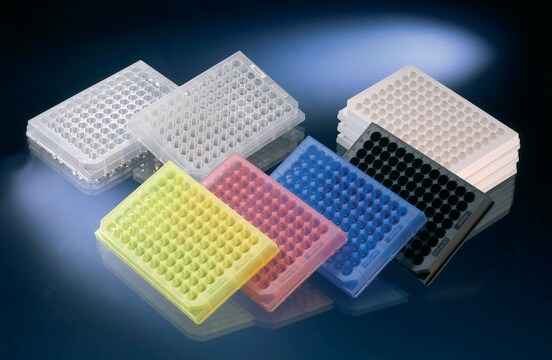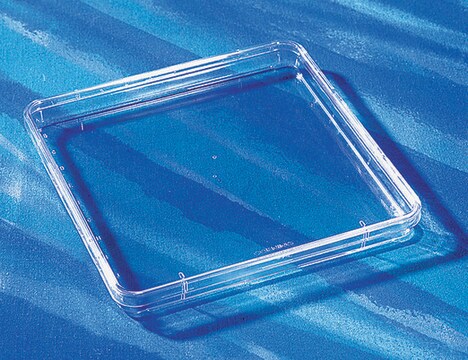M0815
Nunc® MicroWell® MiniTrays
60 well MicroWell™ MiniTray for serological applications, non-treated, polystyrene, non-sterile, 100/cs
Synonym(s):
micro well plate, microwell plates, mini trays
About This Item
Recommended Products
material
flat bottom clear polystyrene wells
polystyrene
sterility
non-sterile
feature
lid
lid
low profile
packaging
case of 100 (internal packs of 10)
manufacturer/tradename
Nunc 439225
external L × W
84 mm × 59 mm , w/ lid
maximum volume
10 μL
size
60 wells
surface area
0.2 cm2 , total surface area (cm2)
well maximum volume
10 μm
working volume
10 μL
color
clear
suitability
suitable for (serological applications)
suitable for (serotyping, microcytotoxicity and cell cloning studies)
binding type
non-treated surface
Looking for similar products? Visit Product Comparison Guide
Related Categories
General description
- Used in serotyping, microcytotoxicity and cell cloning studies
- Optical clarity allows use with inverted microscopes
- Occupy minimal freezer and incubator space
- Lids have keyed tabs for proper orientation
- Large raised alpha-numeric coordinates
- Unique surface treatment to enhance sample and reagent mixing
Legal Information
Certificates of Analysis (COA)
Search for Certificates of Analysis (COA) by entering the products Lot/Batch Number. Lot and Batch Numbers can be found on a product’s label following the words ‘Lot’ or ‘Batch’.
Already Own This Product?
Find documentation for the products that you have recently purchased in the Document Library.
Customers Also Viewed
Our team of scientists has experience in all areas of research including Life Science, Material Science, Chemical Synthesis, Chromatography, Analytical and many others.
Contact Technical Service